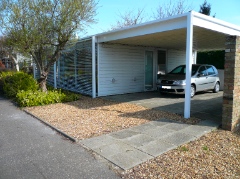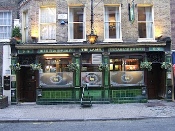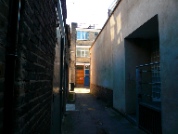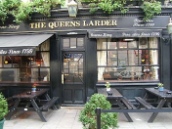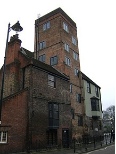Ever since I was very small I’ve had a passion for maps. When we went on holiday to a new place my dad, with my help when I was old enough, got out the road atlas and worked out how to get there, carefully noting down the numbers of the roads and also the names of the towns and villages along the route.
Travelling in those days, when there were no motorways and very few dual carriageways was quite an adventure because the journey took so long, and the car, which was pre-war, was very slow and liable to break down. It took about twelve hours to drive from our home in Essex to Morecambe, or to Llandudno, so my dad liked to start in the middle of the night. The car would be weighed down with suitcases, spare parts and tools for the car, and food, both to eat when we got to the caravan or chalet and also to eat en route, because it was too expensive to stop at cafés, even if there were any. Then there would be a flask of tea, a bottle of orange squash, toys and books and of course all the family, yawning and moaning, and secretly wondering why we couldn’t start in the morning like everyone else.
I have vivid memories of those interminable journeys: carefully studying the route plan so I could give my dad directions, though I suspect he didn’t really need them; looking out of the window at all the new places and scenery; and finally the rush of excitement when we saw the sea, found our holiday home, and started to explore.
I’d be the first person to admit that my memories of those times are bound to be faulty, because it’s often difficult to sort out what happened when, or whether it really happened at all as I remember it. Memories tend to be disjointed; little snippets, often accompanied by a vivid visual image, and sometimes an emotional response. Driving through the Welsh mountains holding a biscuit tin to catch the drips from the leaking roof; the vivid blue of Backbarrow on the edge of the Lake District caused by the local industry; the creaking door of Gwydir Castle; the overpowering smell of seaweed on a beach near Falmouth; all these memories are jumbled together in my brain, and they are released when I look at a map and see the name of the place where they happened.
Maps don’t just show routes or stimulate memories; they offer adventures. The contours, colours and place names create a new world full of excitement and promise, so that it’s possible to have an idea of what a place is like without going there. Of course nowadays thanks to the internet we can see the satellite image as well as the map, and there are links to provide more information about even the smallest towns and villages, but I’m not convinced that on-line maps have the same magic as the paper map spread out on the dining room table, even if they are more convenient.
Part of the fun when I was writing ‘The Story Menders’ was deciding on the real places to be included but also inventing the imaginary places, making mental maps of them, and sometimes sketching them out to make sure that they worked. When I read a novel it’s important that I can imagine the setting as well as the characters, because these are what make the story more believable, and I wanted to achieve the same thing in my writing. It’s up to the readers to decide if I’ve been successful.


